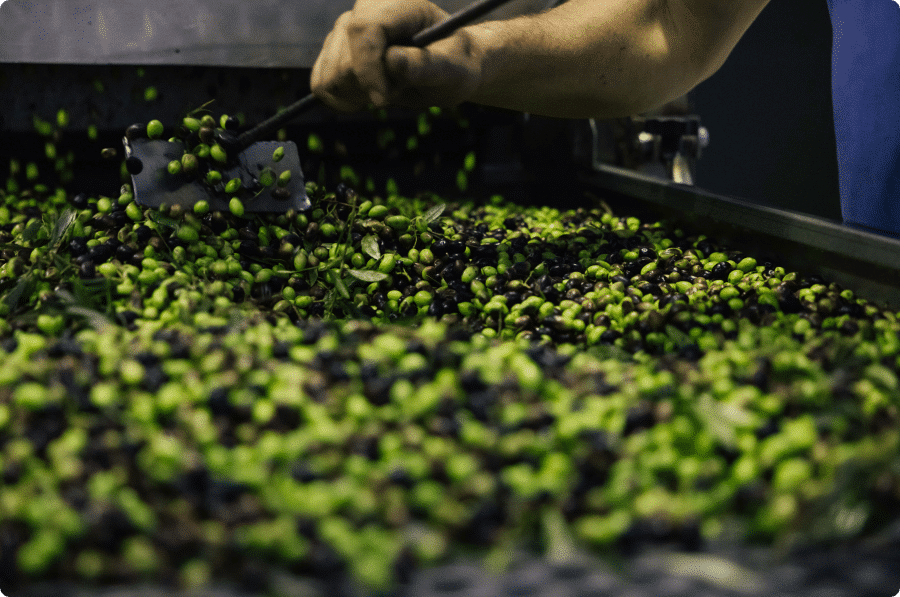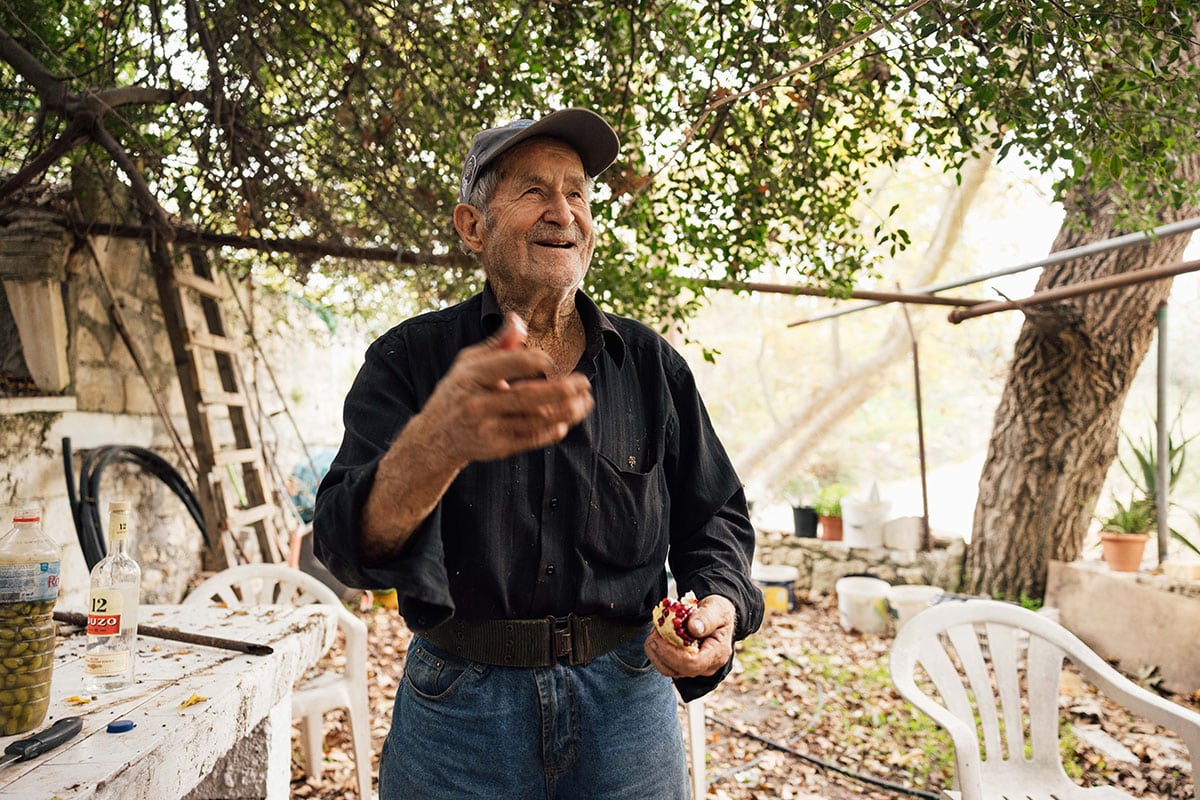We don’t hide the fact that our olive oil is incredibly healthy. One of the main reasons for this is that olive oil contains polyphenols. But what are polyphenols and to what extent are they present in the green gold? We’ll explain it to you!
Polyphenols, what are they exactly?
Let’s start with the most pressing question: what exactly are polyphenols? They are a large group of essential, natural substances. You’ll find them mostly in vegetables and fruits, whole grains and legumes, coffee and tea, pure cocoa (and thus in chocolate), red wine and beer (consume in moderation!), and extra virgin olive oil.

They are the most abundant antioxidants in our diet. Antioxidants are important for our bodies as they help us fight off free radicals. Free radicals are aggressive substances that can cause damage to cells and tissues. In short: polyphenols are essential for a (healthy) life!
There are more than 8000 known types of polyphenols. We won’t cover them all, and fortunately, they can be divided into 4 main groups:
- Flavonoids. More than 4000 polyphenols (about 60% of the total) are flavonoids. You can find them in various fruits, vegetables, tea, chocolate, and wine. Winning, because wine and chocolate are obviously a golden combination. But in moderation, of course! 😉
- Phenolic acids. The second-largest group represents about 30% and is mainly found in fruits, vegetables, whole grains, and seeds.
- Polyphenolic amides. This category is much less common. You’ll find amides mainly in chili peppers and oats.
- Others. Well, then there’s a relatively small group with a great diversity of other polyphenols. These include ellagic acid in berries, curcumin in turmeric, and lignans in flaxseeds, sesame seeds, and whole grains.
How much polyphenol is in olive oil?
So, what about these substances in olive oil? Well, the book Polyphenols in Olive Oil explains it in detail. So, we quote: “Olive oil is packed with polyphenols, especially Hydroxytyrosol and Tyrosol. It helps treat and prevent heart disease, cancer, type 2 diabetes, neurodegenerative diseases, inflammation, and aging. They are antimicrobial and also play an important role in strengthening the immune system and protecting certain tissues and organs from oxidative damage to the brain, liver, blood cells, muscles, and arteries.” *Mic drop*!

What about the polyphenols you find in our organic, extra virgin olive oil? The tests we’ve had done on our batches specify the amount of polyphenols in the olive oil. The polyphenol count shown in the analyses for our batches ranged between 350 and 600 parts per million (Total Polyphenols (ppm caffeic acid) *), meaning 350 to 600 milligrams of polyphenols per kilogram of Gkazas Olive Oil. The average for other olive oils is between 100 and 250. Anything above 350 is considered a high amount. Let’s go Greek olive oil!
What does a tablespoon of olive oil per day do?
You’ve probably heard the old Greek saying: a few tablespoons of olive oil a day keeps the doctors away. 😉 But seriously: Most health organizations recommend consuming about three tablespoons for women (around 40 ml) and four to five tablespoons for men (around 65 ml) of olive oil per day.
Why? Because olive oil, in addition to antioxidants, also contains unsaturated fats and has other positive effects on your health. These are the reasons why olive oil is healthy. It’s important to remember that olive oil is a fat, and excessive use can lead to weight gain and other health issues. Want to know more? We’ll tell you how much olive oil you should eat per day?

Only the highest quality extra virgin olive oil
Does the above apply to all types of olive oil? No, only to the highest quality, extra virgin olive oil. The best olive oil. This is for several reasons, but the most important one is that our extra virgin olive oil is organic olive oil produced in the most authentic way. As a result, the least possible amount of polyphenols is lost.
It should be clear by now that extra virgin olive oil is healthy and a great addition to your diet for living a healthy life. The high number of polyphenols is a decisive factor here. However, there are more reasons to consider, which you can read about here! Stay healthy. 🙂






